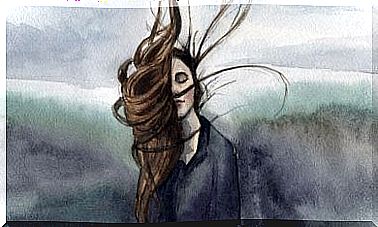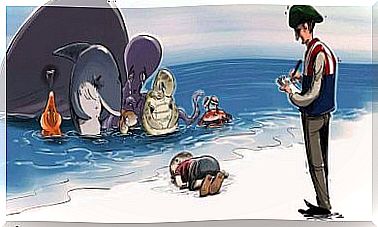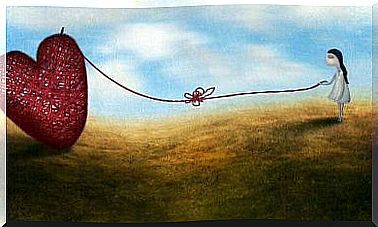The Marks Left By “toxic Education ” In Our Brains
We could talk about several types of education, the transmission of values, etc …
Even if it is known that no one comes into the world knowing how to raise a child and make it happy, any progenitor is aware that the basis of it all is love.
However, the main problem lies in the way people perceive the word “love.” Does loving a child mean protecting him from harm and locking him up forever in a bubble?
Does loving a child mean sanctioning everything he does, says or chooses so that he follows the path that we consider acceptable to him?
And what can be said about toxic mothers who manipulate and weave their narrow web in order to satisfy their own desires and prevent the child from stepping out of their comfort zone?
Without a doubt, we all know how to identify these toxic education styles.
Let’s talk about this harmful upbringing here and how it is reflected in the brains of children.
1. A brain under stress
Stress is not a condition that characterizes our adult life, in absolute terms. A newborn baby who is not cared for when crying suffers from stress, just as a baby who does not receive hugs or affection suffers from stress.
So what happens in the case of an upbringing influenced by a toxic mother, a toxic father or overbearing progenitors?
– Every day, the child is under great pressure. He knows that each of his steps, his words or his choices will be analyzed or even punished. This puts him in a constant state of insecurity which plunges him into stress and anxiety.
– In addition, we often see in this complex situation where the child wants to free himself from the web, that the toxic mother pays attention to everything he does, and tells him what to do.
However, the idea of stepping out of this zone of influence and comfort zone also scares the child.
– He is afraid that any disobedience to the authoritarian father or the toxic mother will have serious consequences.
He is afraid of punishment but also of “disappointing” his progenitors. All of this generates stress.
– Children under stress from an early age until the onset of adolescence, for example, show very high levels of cortisol, adrenaline and norepinephrine.
– These hormones and neurotransmitters cause slight alterations in structures such as the hippocampus, amygdala and frontal lobe.
– What does it mean ? How does this translate on a behavioral or emotional level? There are deficits in working memory, that is, in the ability to solve problems.
– The hippocampus, for example, is related to emotions and memory, while the frontal cortex is related to decision making.
This means that children under very high stress often have problems making decisions, solving problematic situations, and maintaining inner regulation and self-control when faced with a task or problem solving.
– Obviously we all have our personal stories and we cannot standardize this data.
However, intense stress at a very young age often leads to insecurity and difficulty in resolving or getting out of complicated situations.
2. The emotional brain of children
A toxic education will generate in the child an agitated current of contrary emotions.
Toxic mothers, for example, often create love-hate relationships, along with a complex addiction of need, fear, hatred and tenderness.
With an authoritarian education, we exercise the power of fear, causing very negative emotions that mark children for a long time.
Although as we grow we may react to this influence, it is something that marks the brain forever.
– The most negative and intense emotions are undoubtedly fear and anger.
These are sensations commonly experienced in toxic upbringing.
Even if the child has good times, oddly enough, bad memories have a much more impact on their brain than good ones.
– Fear and anger are concentrated in a small primary structure called the amygdala.
It is part of the limbic system and is located deep in the region of the temporal lobes.
Its function is to store emotional experiences and install what is called fear conditioning.
– The amygdala also helps us establish long term memory.
Therefore, all the negative facts that we experience in our childhood and which form an uneasiness in us, fear or anger, are sensations that often remain for life.
– The amygdala leaves a “mnemonic” mark which means that when we reach adulthood, we use these memories a lot, either to react and avoid certain things, or to remain prisoners of the same fears.
It is undoubtedly a very complex dimension.









